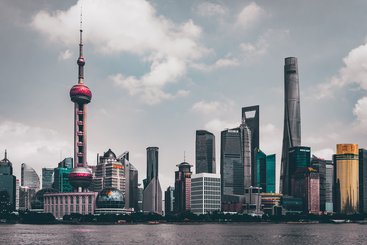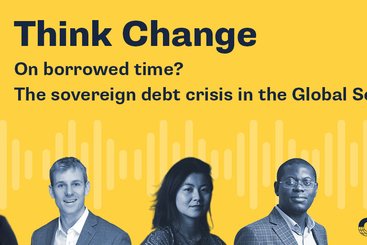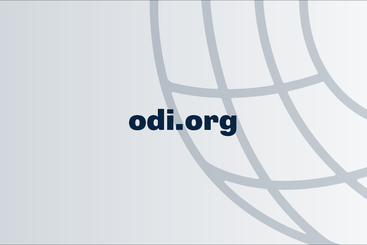Welcome to the December issue of our China and global development round-up. This month, we have a lot of things to discuss: climate change, China’s transition to a new phase of development, the future of the BRI and African views on China.
Climate change near and far
The recently concluded COP27 generated a lot of interest in China’s contribution to combating climate change.
My colleagues at ODI have written a thought-provoking blog on climate finance contributions. Much of the debate around providing more international public climate finance has fixated on China as a possible contributor. An earlier report by my colleagues has put forward two criteria for expanded contributions: ability to pay and historical responsibility for climate change. According to these criteria, China (surprisingly) does not qualify as a climate finance provider. The report suggests that “demands that China becomes a climate finance contributor are based on geopolitics, particularly China’s status as a global power and international financier”, rather than on evidence.
This report by the Grantham Institute on the climate-trade nexus in China argues that trade policy plays a crucial role in supporting China to reach climate change mitigation and adaptation objectives. China can play a crucial role on climate change at the international level by leveraging the climate-trade nexus through multilateral and bilateral trade agreements. More of this should be done in the future, according to the authors, through cooperation on carbon pricing mechanisms to advance carbon neutrality, support for a Green Belt and Road, and further cooperation at the G7-G20 level.
A report from the Griffiths Asia Institute focuses on Chinese engagement on climate change in the Asia-Pacific region. The report finds that, despite climate change being a priority for Pacific countries, engagement with China on this issue has been undeveloped to date. Most exchanges appear to be at the bilateral level, and therefore very different in each country. In particular, climate issues are only included in bilateral negotiations if the Pacific countries explicitly request this – though China is found to be responsive to these requests.
Moving from the Pacific to Africa, this report by Development Reimagined looks at China-Africa engagement on climate change. This has increasingly gained importance in Africa-China relations, as demonstrated by the Declaration on the China-Africa Cooperation on Combating Climate Change at the 8th Forum on China-Africa Cooperation in 2021. But the report also highlights that, as in the case of the Pacific, most of this engagement has been bilateral rather than continental.
China’s transition to a new phase of development?
A volume edited by authors at the Australian National University highlights the fundamental changes in China’s economy. The book touches on several aspects, from innovation to the hukou system to carbon neutrality. I particularly enjoyed the chapter by Justin Lin on dual circulation, a strategy guiding China’s economic development in the domestic and international market that gained prominence in the past two years. The chapter explains that the domestic market, or the ‘internal’ part of the dual circulation system is the core of China’s new development paradigm, in response to an uncertain external environment – with particular reference to the United States. This said, the ‘external’ circulation remains important, in particular in relation to other markets, such as Europe, Japan or South Korea. All in all, the chapter does a good job at explaining why the dual circulation is mostly something concerning the United States, and it should not affect China’s relations with the Global South.
In relation to this, an important topic that re-emerges periodically (we have already discussed this in an earlier roundup) is China’s status as a developing country. Panda Paw Dragon Claw reports on an article written by a government official on this matter. While income metrics firmly ground China among emerging markets or upper-middle income countries, depending on the classification, perceptions based on China’s growth prompt many to argue that China should renounce its developing country status. But to give up this status would have huge implications for China, in particular in terms of its foreign assistance – therefore the government official suggests this needs to be weighed properly.
The future of the Belt and Road Initiative (BRI)
In light of these recent developments, it is interesting to think about the future of the BRI. A piece by Francesca Ghiretti considers what outlook the 20th Congress of the Chinese Communist Party (CCP) provided for the initiative. The piece argues that the BRI has undergone many changes in the past years, but it is far from disappearing, and is now accompanied by other initiatives (such as the Global Development Initiative (GDI), which I highlighted in the last roundup).
This seems to be backed up by recent research by Boston University’s Global Development Policy Centre. In 2020, the same centre released data showing a decline in lending by two major Chinese policy banks. At the time, many saw this as a sign of ‘the demise of the BRI’. We argued that while funds from policy banks were drying up, these might have been replaced by other sources of finance, rather than indicating the end of the initiative. A recent brief by Boston University supports this conclusion. It shows that since 2007, many overseas development investment funds have emerged as a source of finance for investment and infrastructure development. The brief provides an overview of these funds, their resources and sectors of operation.
My colleague Yunnan Chen has written a blog discussing the new infrastructure geopolitics. She argues that the BRI has more or less been shelved, and China has positioned itself in a more ‘traditional' development, poverty-oriented space through the GDI. At the same time, she says, “G7 initiatives to rival China’s dominance in the infrastructure space may prove difficult to implement”.
African views on China matters
In a blog for the Africa Centre for Strategic Studies, Paul Nantulya reflects on China’s foreign policy in relation to Africa after the Chinese Communist Party's 20th National Congress. He argues that African countries have largely been supportive of China on many issues, including the One China principle, and more recently the newly launched Global Security Initiative (GSI). Nantulya expects that China’s efforts to enlist African support will intensify during Xi’s third term, in particular through ‘discourse power’ and the intensification of people-to-people ties.
Prof. Jean-Claude Maswana joined The China in Africa podcast to discuss China-Africa trade relations. Prof Maswana confirms that China-Africa trade is unbalanced, both in terms of quantity (with African countries carrying a large trade deficit) and quality (as Africa mostly exports raw materials and agricultural commodities to China). However, he argues that the roots of this imbalance lie in the African trading structure, and that it is the responsibility of African countries to rebalance that. Moreover, the podcast starts with an insightful introduction by Cobus van Staden of the role that Jiang Zemin, who recently passed away, played in shaping China-Africa relations.
Finally, a nice piece by Abdoulkadre Ado on Chinese joint ventures in West Africa shows the complex ways in which West African actors shape their commercial engagement with China. These joint ventures, the author shows, respond increasingly well to local contexts, and Chinese actors adjust their ways of doing business to adapt to both formal and informal local institutions. For instance, Chinese joint ventures mobilise connections of West Africans who have lived in China to reduce their risk of doing business, or teach local languages to their Chinese staff.
If you would like to sign up to receive this China and global development resource round-up regularly, please contact me.



